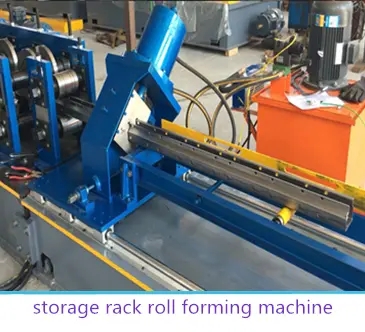
The Evolution and Importance of Roofing Tile Roll Forming Machines
In today’s construction industry, the demand for durable and aesthetically pleasing roofing materials has led to significant advancements in manufacturing technologies. One of the most pivotal innovations is the roofing tile roll forming machine. This advanced machinery not only enhances production efficiency but also significantly contributes to the quality of roofing tiles, ensuring they meet the evolving needs of both builders and homeowners.
Understanding Roofing Tile Roll Forming Machines
At its core, a roofing tile roll forming machine is designed to convert flat metal sheets into profile roofing tiles through a continuous process. The sheets, typically made of steel, aluminum, or other metals, are fed into the machine, which shapes them into pre-defined profiles using a series of rollers. The end product is a robust and durable roofing tile that can withstand harsh environmental conditions while providing aesthetic appeal.
The process begins with the setup of the machine, where parameters such as thickness, width, and profile shape are adjusted according to the specifications of the desired tile. Once the machine is calibrated, the input sheets are unwound, and they pass through various rollers that gradually shape the metal into its final form. The continuous process allows for high-speed production, which can significantly reduce the cost per unit and satisfy large-scale construction demands.
Benefits of Using Roofing Tile Roll Forming Machines
1. High Efficiency One of the most significant advantages of roofing tile roll forming machines is their efficiency. Through automated processes, these machines can produce thousands of tiles in a fraction of the time it would take by traditional methods. This efficiency not only accelerates project timelines but also leads to reduced labor costs.

2. Customization Modern roll forming machines offer a high degree of customization. Manufacturers can easily alter the configuration of the rollers to create various tile profiles, allowing customers to select designs that align with their architectural vision. This flexibility is particularly beneficial for contractors and builders who require specific designs for different projects.
3. Consistent Quality With automated processes, roofing tile roll forming machines provide enhanced consistency in product quality. Each tile produced has uniform thickness and shape, which is crucial for structural integrity and aesthetic appeal. This consistency helps minimize waste and reduces the likelihood of defects that can arise from manual manufacturing.
4. Durability Roofing tiles produced using roll forming technology are known for their durability and resistance to environmental wear. The metal used in the manufacturing process is often treated with coatings to protect against rust and corrosion, ensuring that the tiles maintain their appearance and functionality for years.
5. Sustainability The manufacturing process associated with roofing tile roll forming machines also supports sustainable practices. The use of metal, which is highly recyclable, means that the materials can be repurposed, reducing the overall environmental impact. Additionally, high-efficiency production methods lead to less waste compared to traditional manufacturing techniques.
Conclusion
As the demand for high-quality roofing materials continues to rise, roofing tile roll forming machines stand at the forefront of modern manufacturing. They encapsulate the balance of efficiency, customization, and sustainability—key elements that are increasingly essential in today’s construction landscape. With ongoing technological advancements, the future of roofing tile production looks promising. Manufacturers are likely to continue innovating, incorporating features such as improved automation and smart technology, further enhancing the capabilities of roll forming machines.
For builders and contractors, investing in roofing tile roll forming technology is a step towards ensuring quality, reducing costs, and meeting the diverse needs of their clients. In an era where building materials must be reliable and visually appealing, roofing tile roll forming machines play an invaluable role in shaping the skylines of our cities and communities.